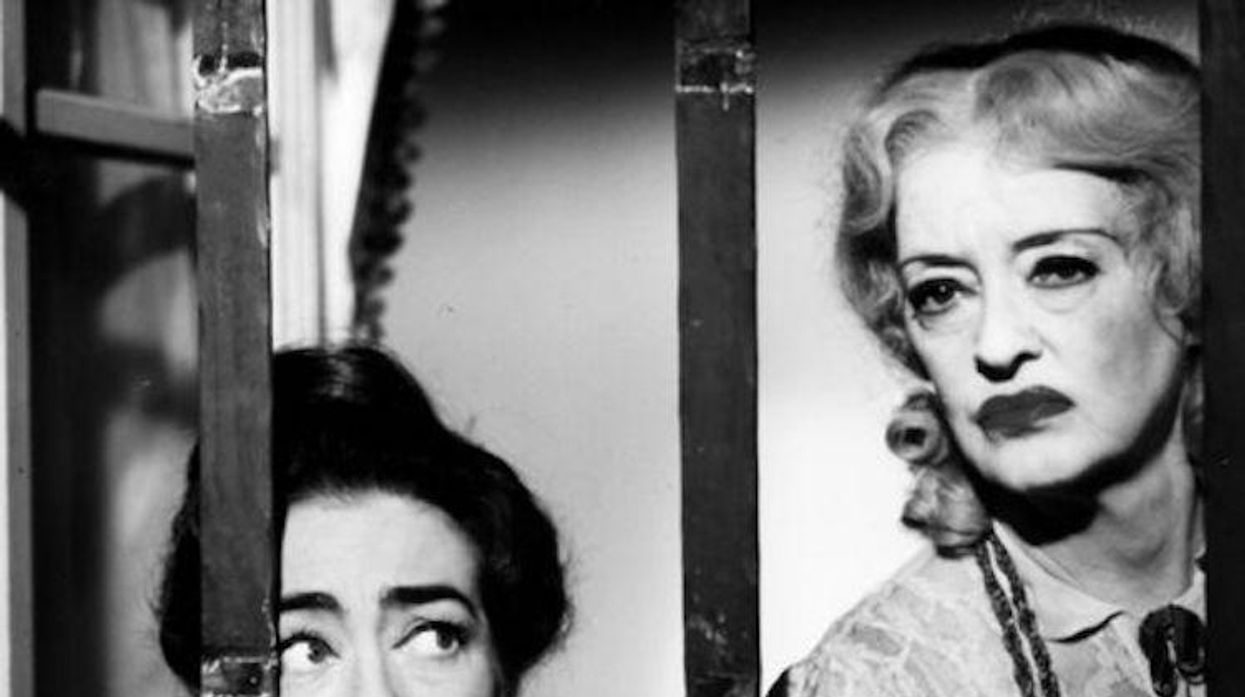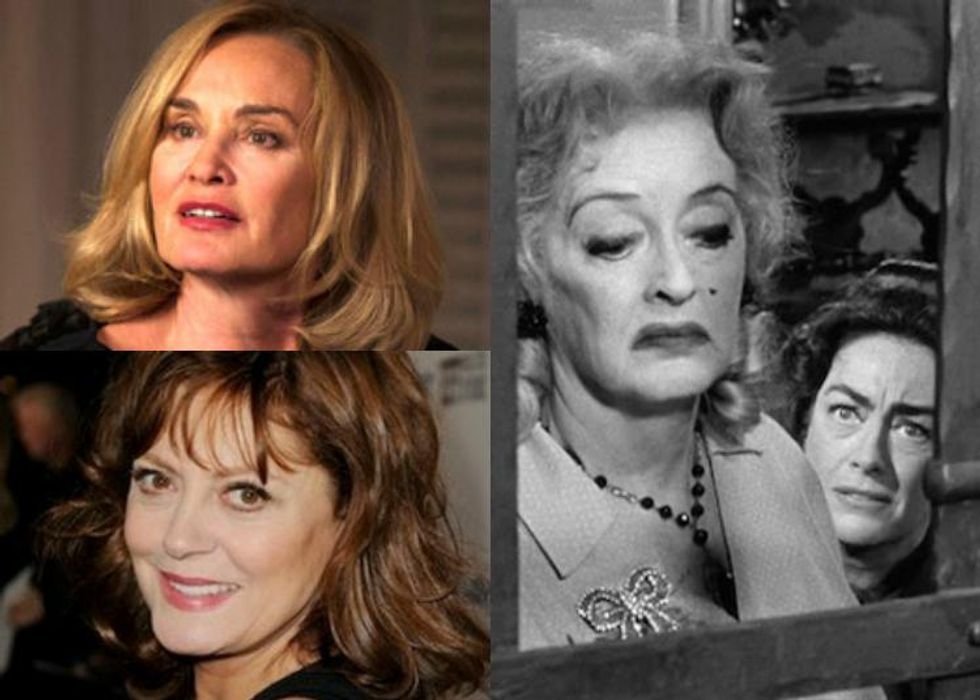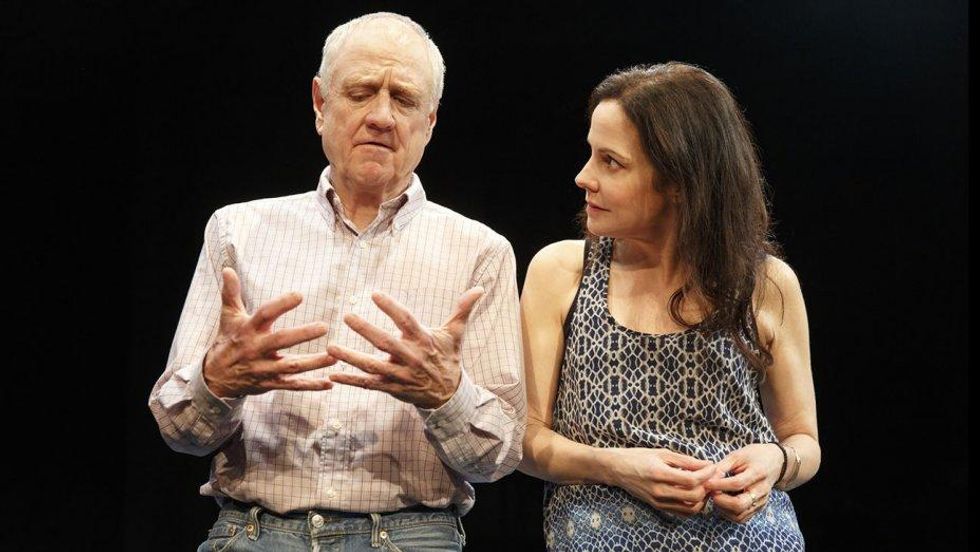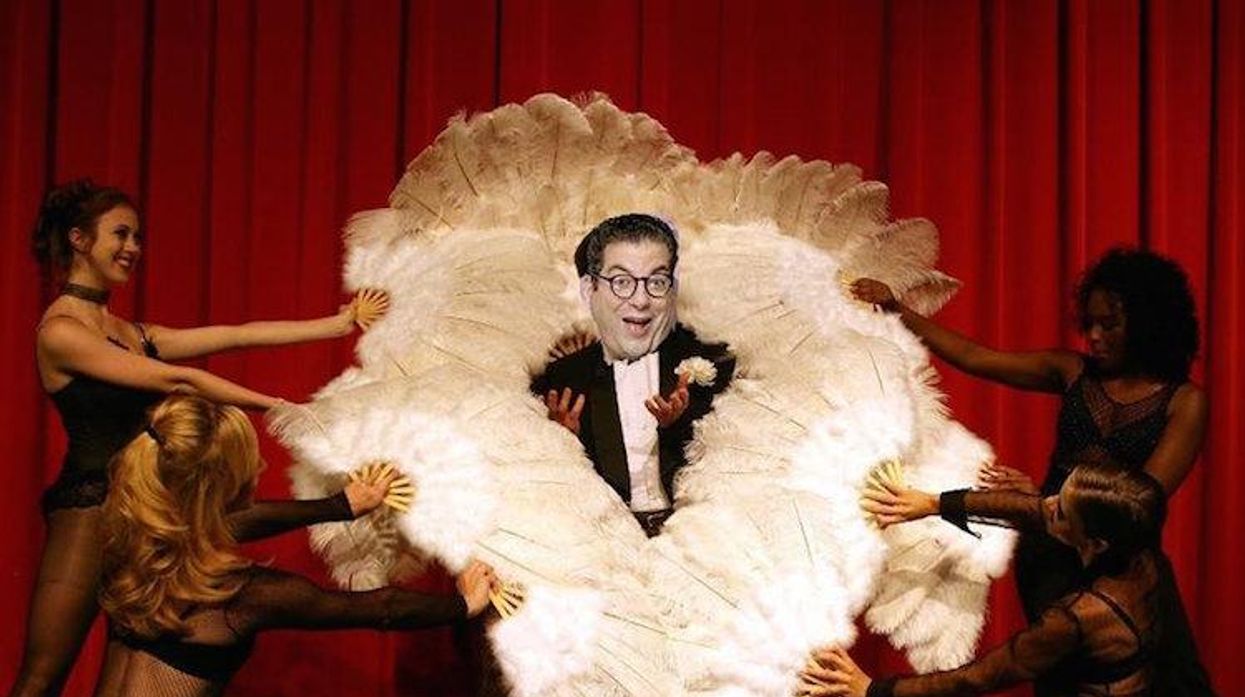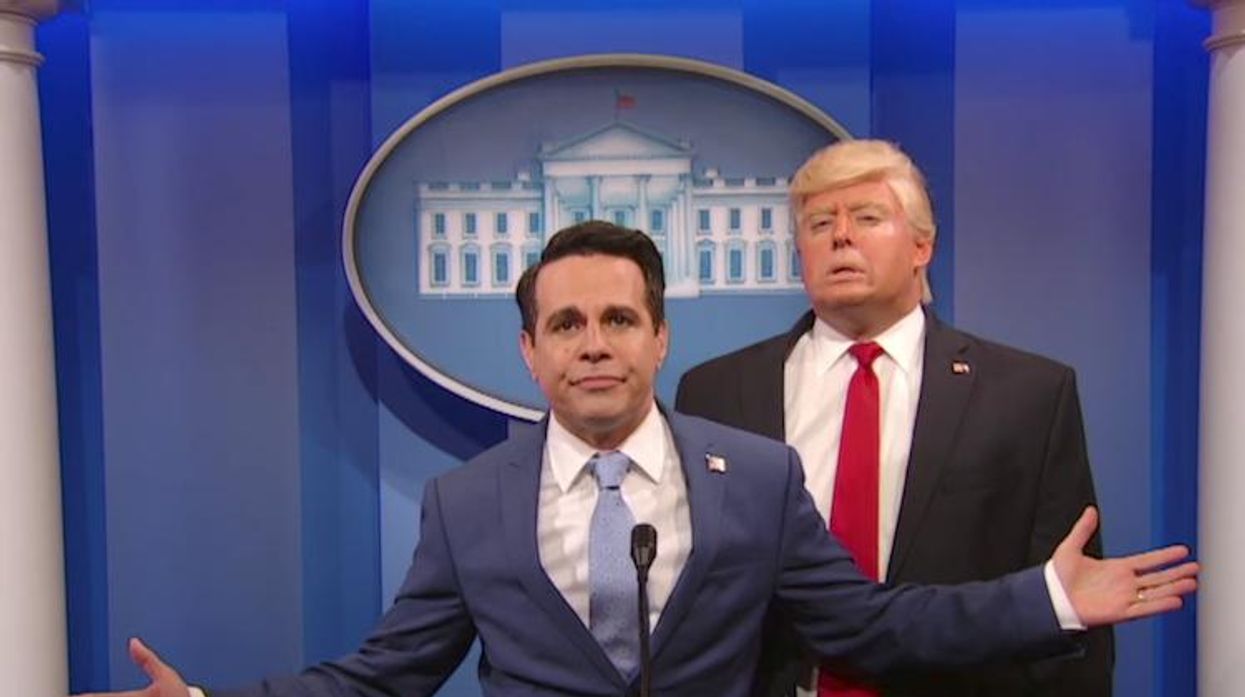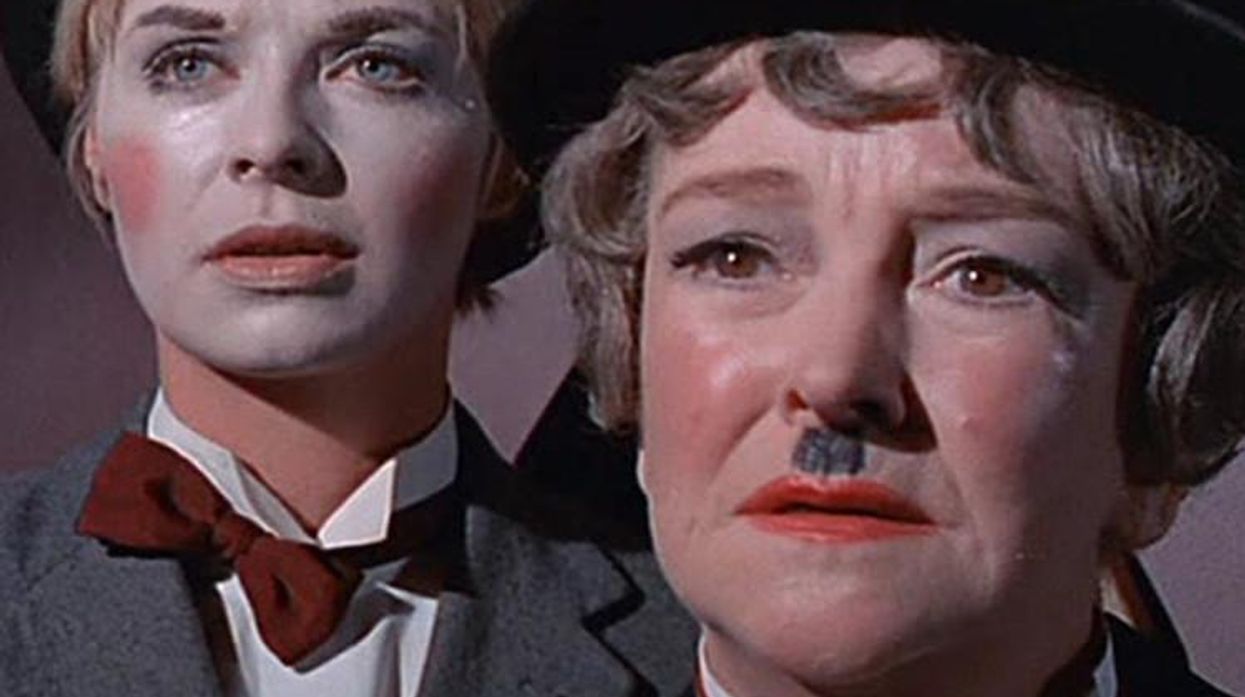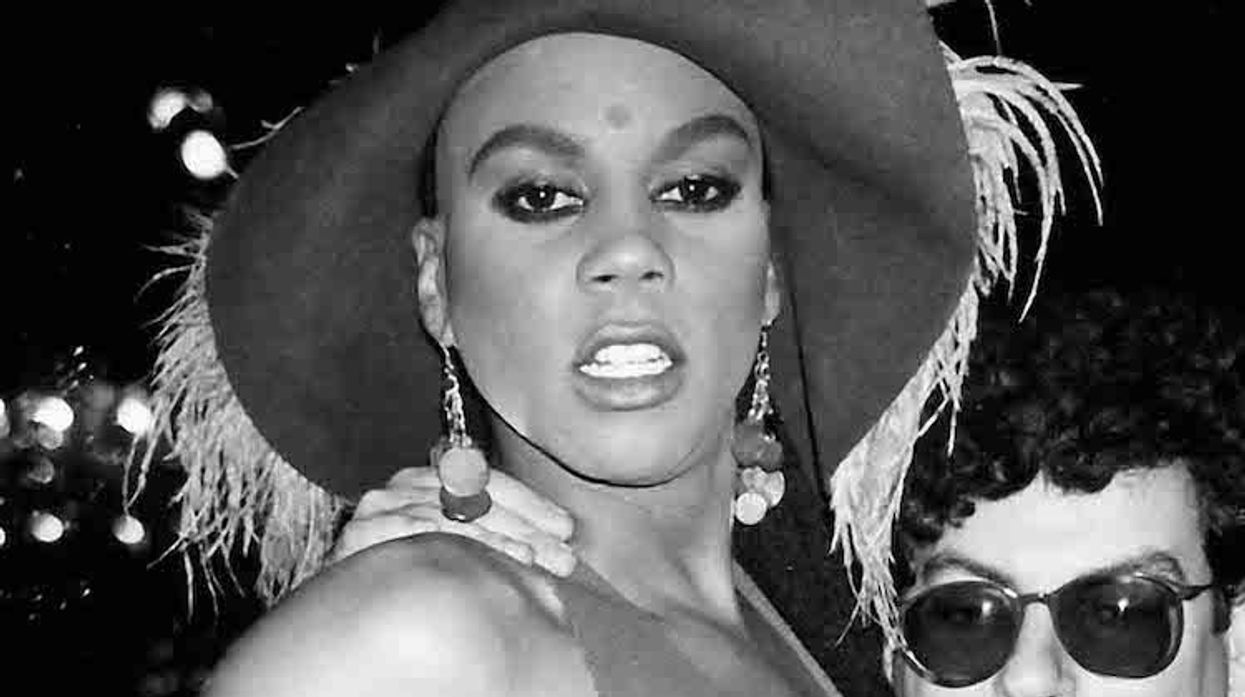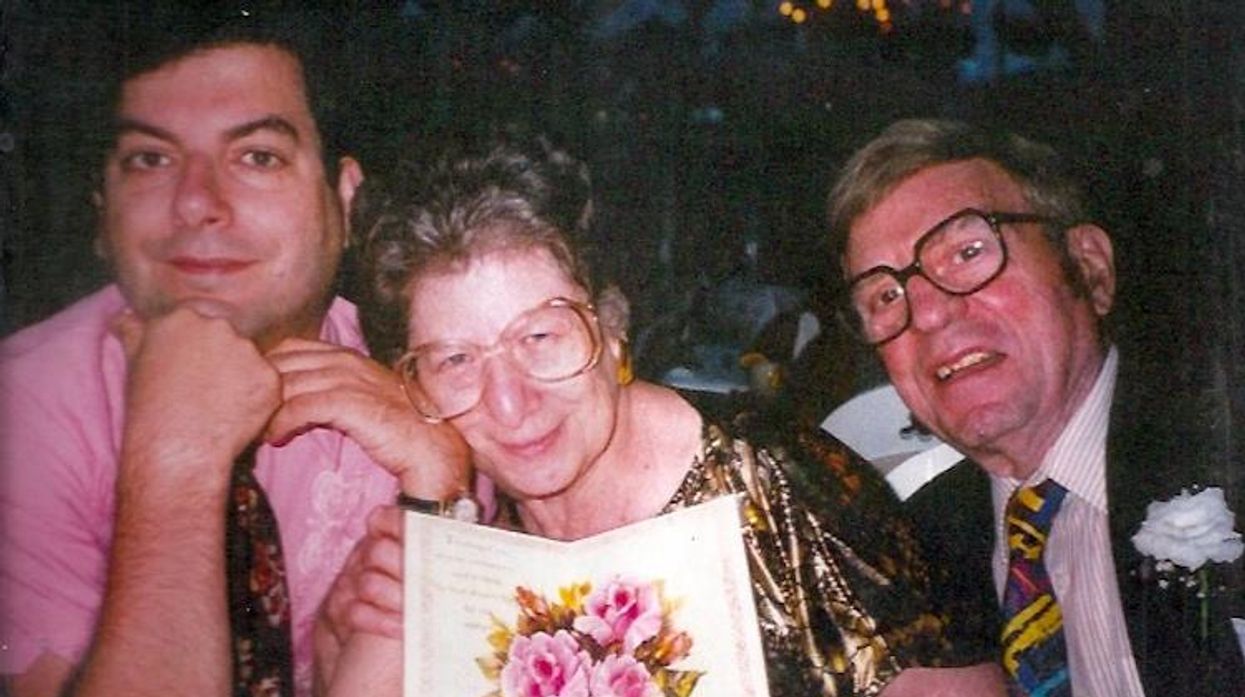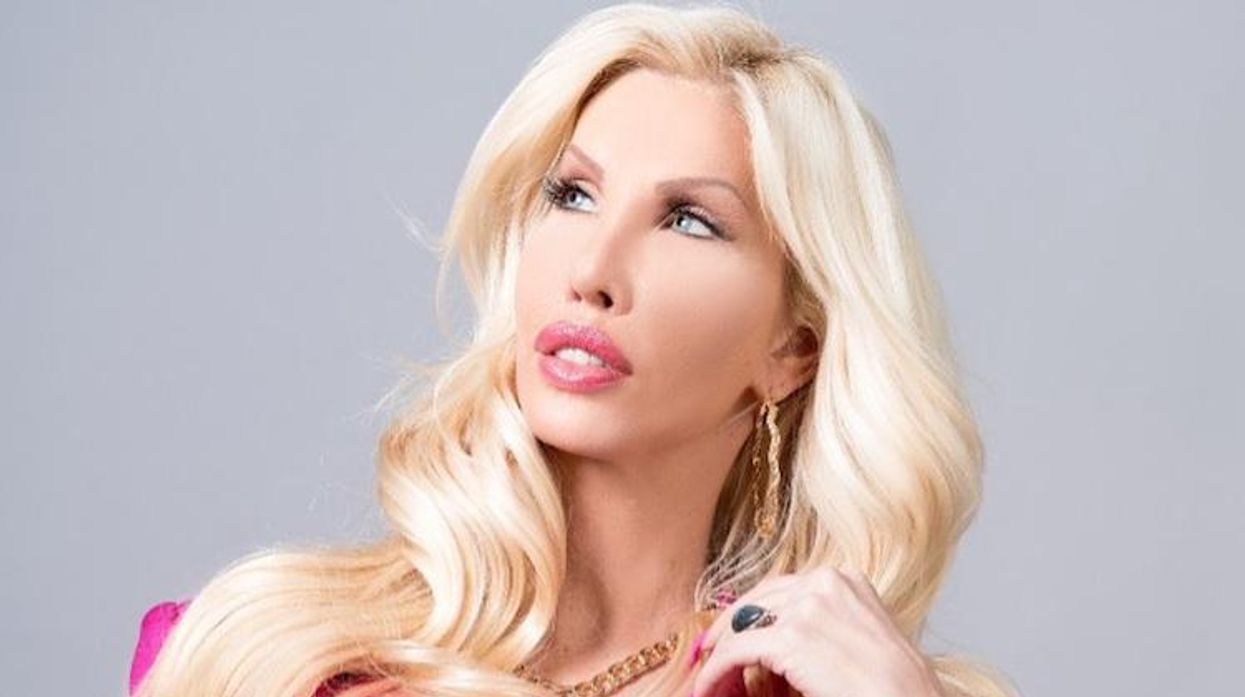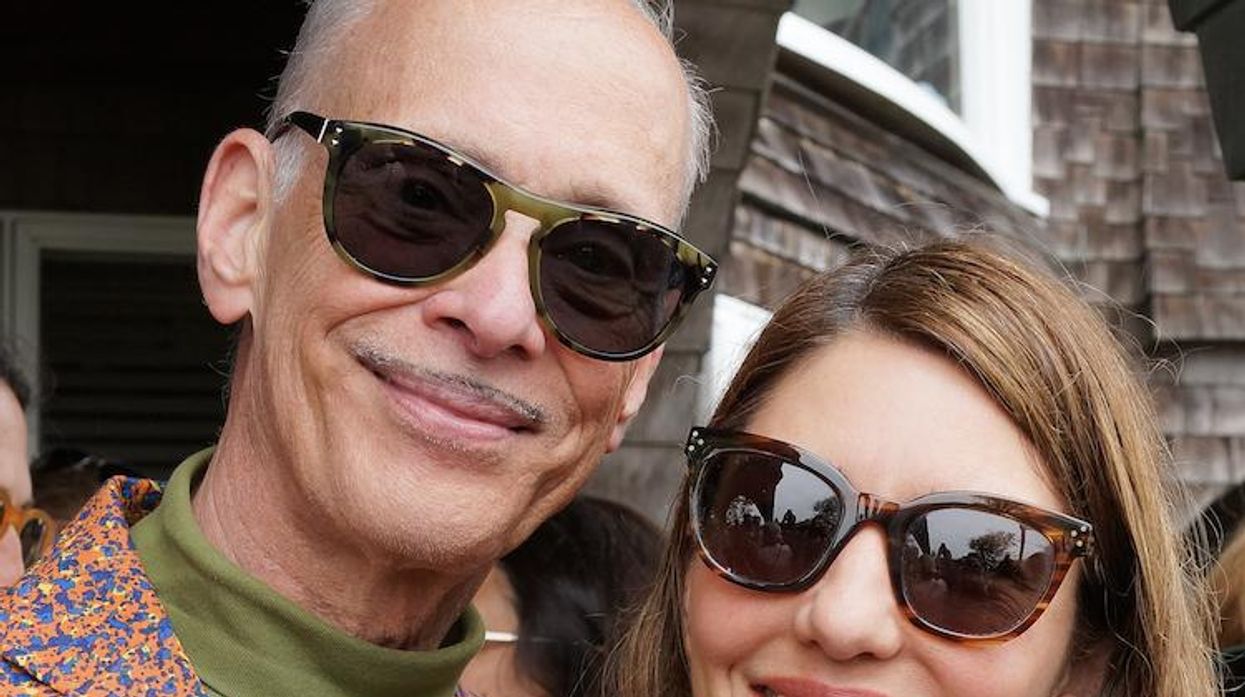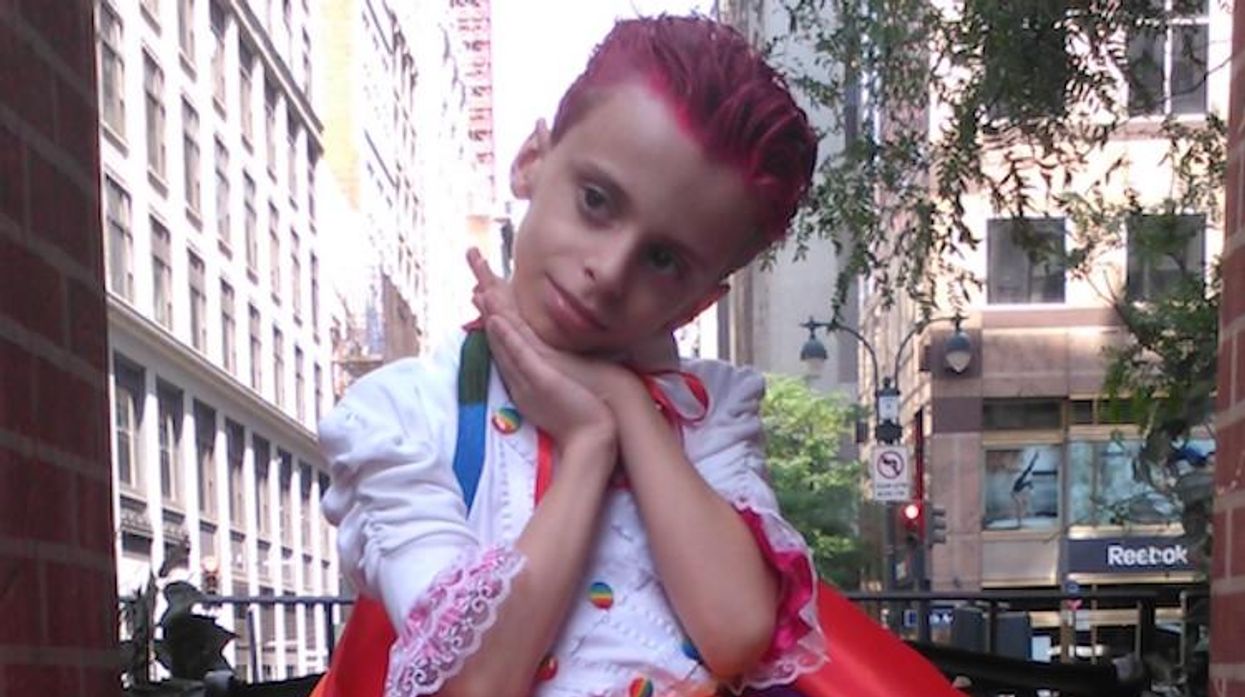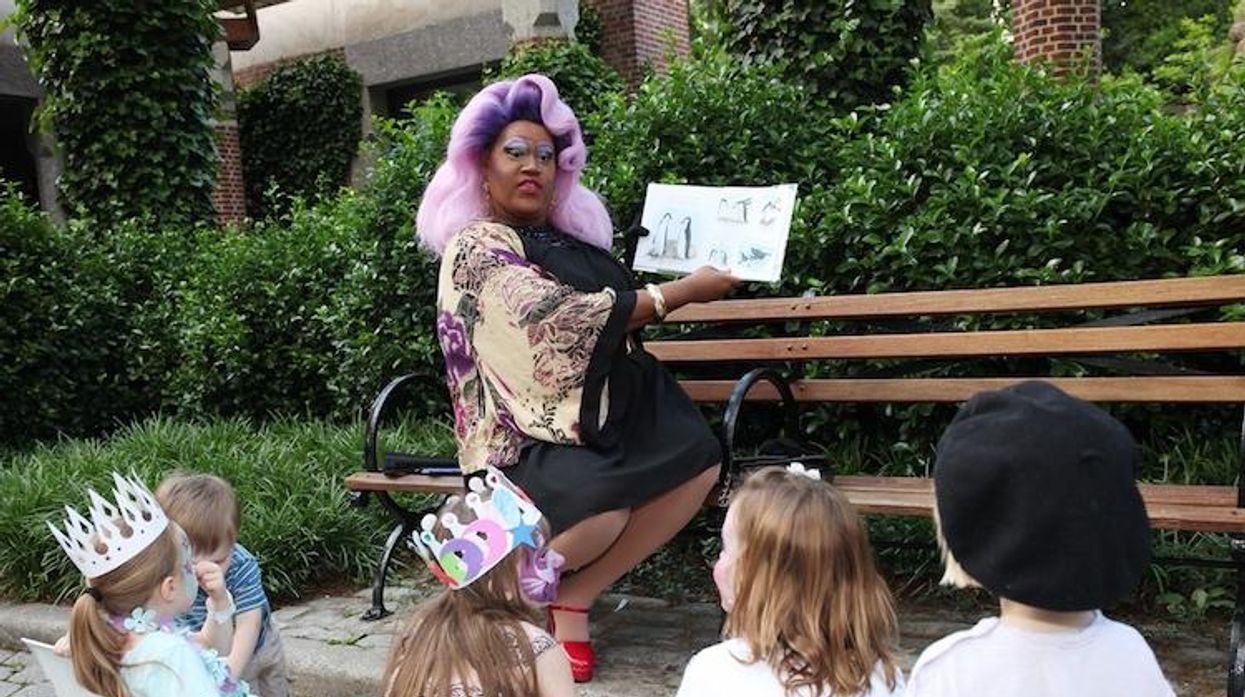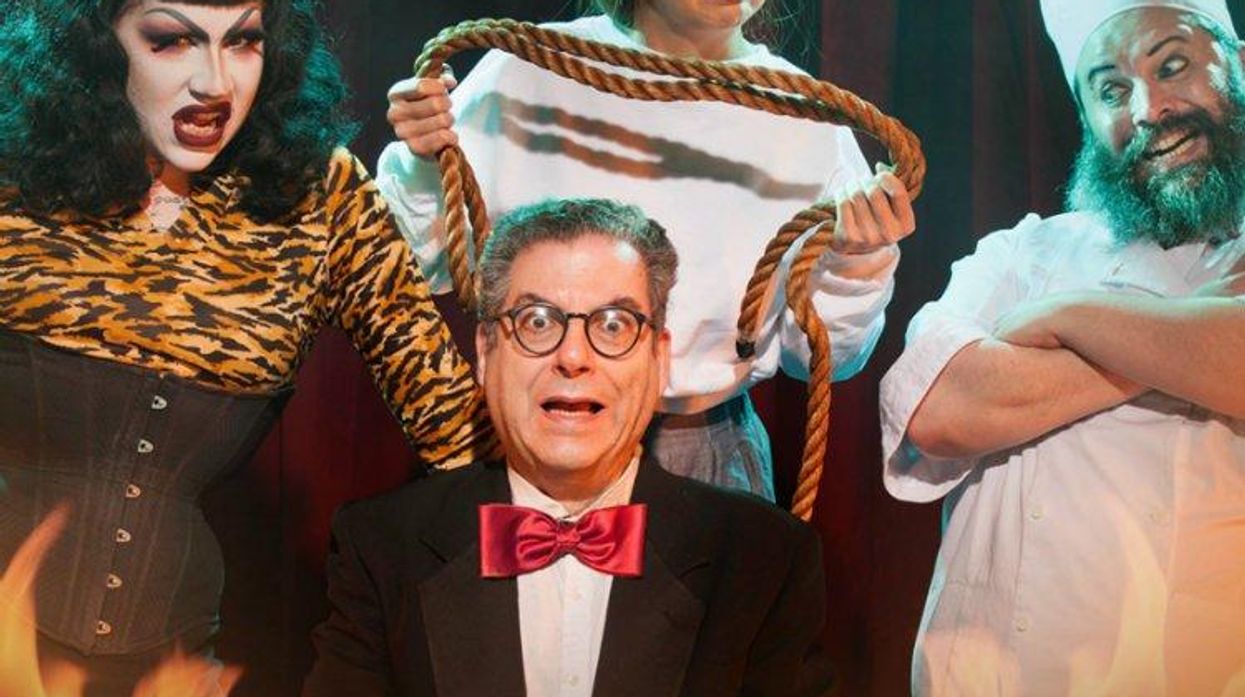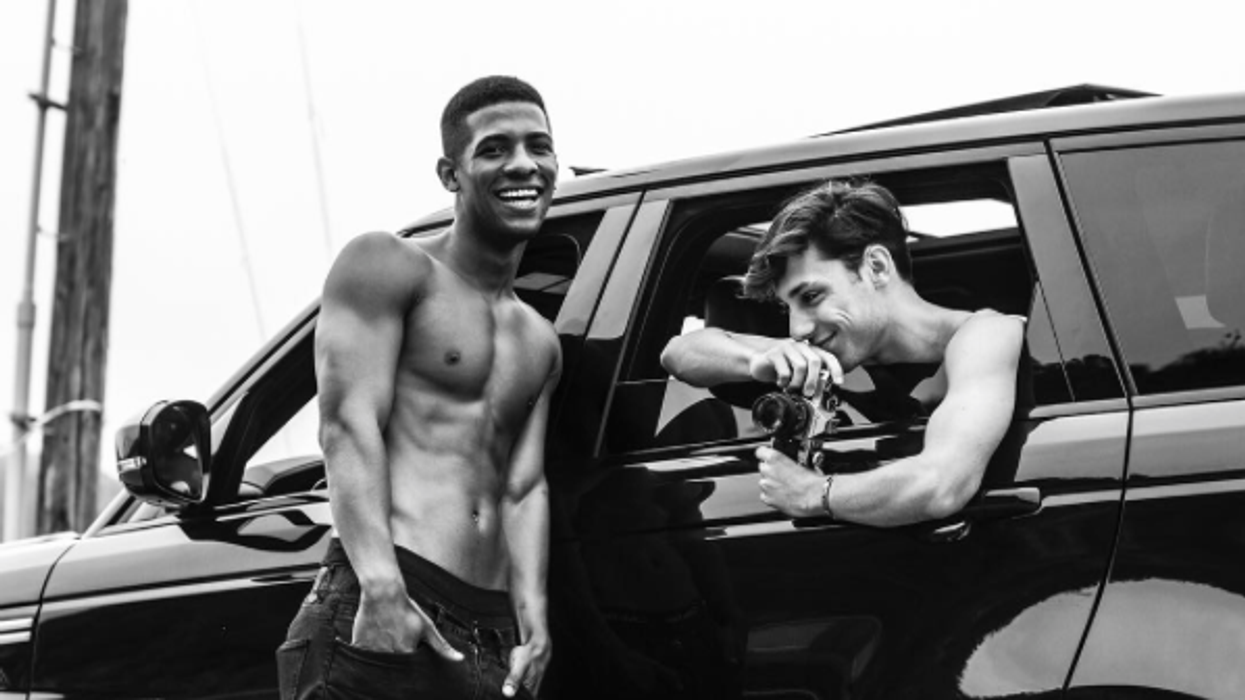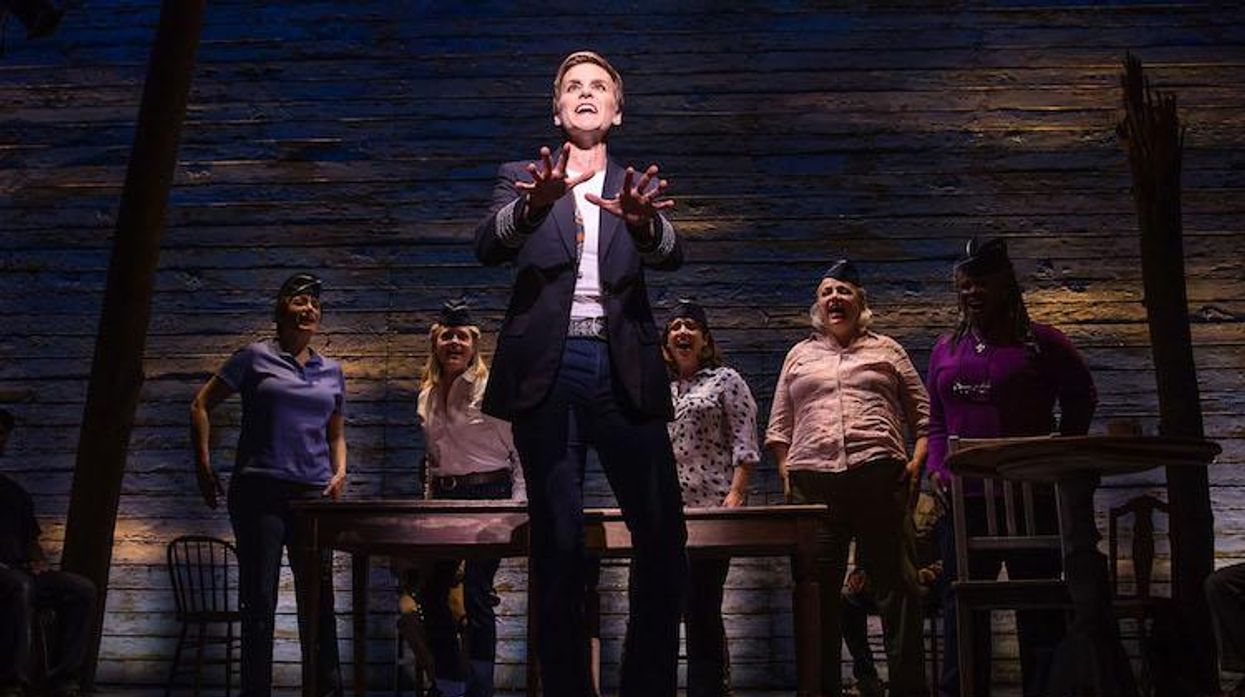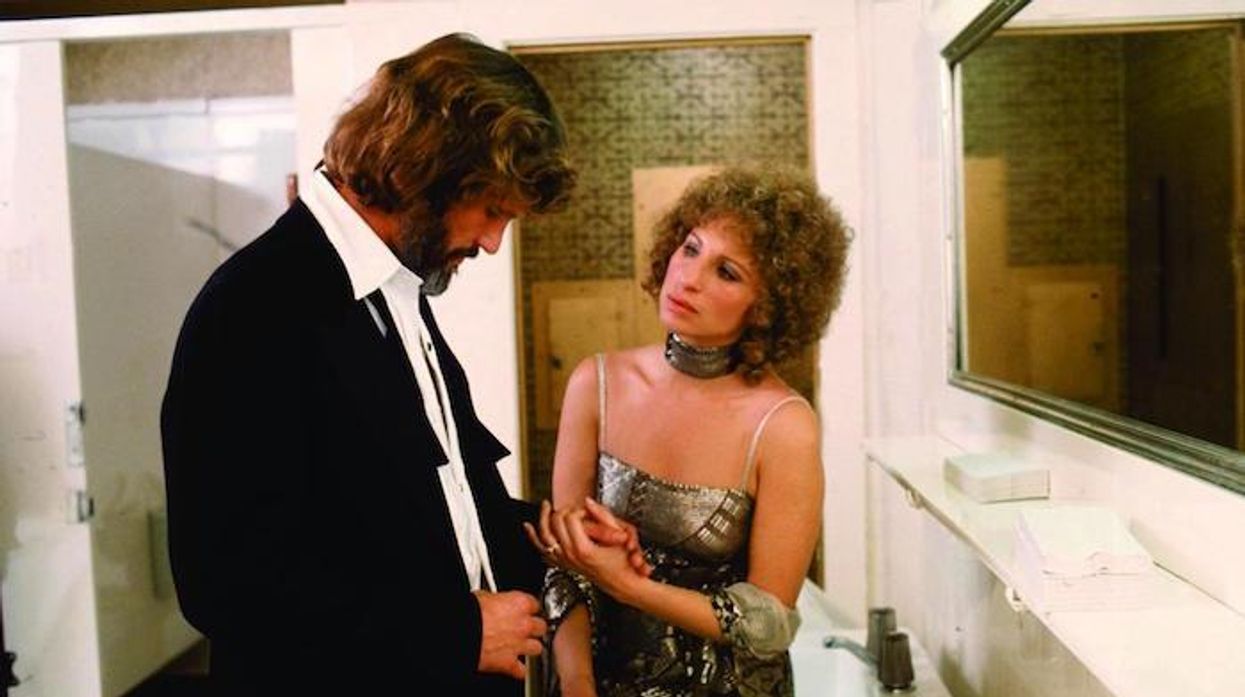When I heard that Ryan Murphy's upcoming FX series called Feud--about rivetingly bitter real-life rifts--would feature an entire first season devoted to warring movie stars Bette Davis and Joan Crawford, I got as excited as I did on reading that they're remaking Godzilla vs. King Kong.
Bette and Joan's feud was just so delicious--and so publicly played out--that it's grist for a great dramedy, especially with Oscar winners Susan Sarandon and Jessica Lange cast as Bette and Joan.
As we prepare for those two to slug it out, let's consider what made this such a great war of the withered roses. At the heart of it was Bette's contention that she was a real actress, whereas Joan was a mere movie star. (Conversely, Joan dismissively noted that she herself was a person of respect whereas Bette had simply become a joke beloved by screaming gays.) Bette's claim may be partly true--she did get to show more range in roles, largely because she battled the big guys and demanded good material--but I happen to like Joan's acting, especially as she aged and projected a certain decency she apparently lacked offscreen. Besides, after they got together for the 1962 Granny Guignol classic What Ever Happened To Baby Jane?, they both followed that with a string of fabulous crap that pretty much put them on the same level.
And what about that film (so ably directed by Robert Aldrich)? It cannily played on their real-life rivalry by casting them as two has-been sisters, one dementedly holding the other captive and serving her a dead rat for lunch, among other offbeat treats (like the outlandish sound of her singing). The film is macabre, funny, and heart rending all at once, and I always said if it was in French with English subtitles, critics would have deemed it a towering achievement du cinema. Of course it wasn't exactly ignored as is. In fact, it was a big hit, paved the way for older actresses to go grotesque, and got Oscar nominations, including one for Bette Davis as Best Actress. That drove Joan over the deep end, especially since Bette had called her after seeing the film and boasted about how great her own performance was, neglecting to utter a single syllable about Joan's. (Joan had also complained about Bette's physical abuse during the making of the movie; Bette acted out her Baby Jane role a little too literally for comfort.) That's when Joan got less enthusiastic about promoting the film, and when Bette got nominated, Joan went on an even darker mission. She contacted the other nominees to say that if they couldn't make the Oscar ceremony for some reason, she'd be absolutely tickled to accept for them. Sure enough, The Miracle Worker's Anne Bancroft was busy on Broadway and said she'd be thrilled to have Joan accept for her if she won. And the winner was...Anne Bancroft. Poor Bette had to sit there, fuming, as Joan Crawford took the stage, triumphant.
After Baby Jane, the public was desperate for a Bette and Joan re-pairing, so two years later, Robert Aldrich was set to direct them in Hush...Hush Sweet Charlotte, another gothic thriller, with distinct similarities to Baby Jane. For one thing, Bette's character is a wacky belle who seems demented and may have committed a horrible crime. For another, Joan's character was nowhere near as juicy or rewarding as Bette's. Possibly because she realized she was getting the short end of the stick again, Joan became ill and held up production while she recuperated. She might well have been thrilled when she was replaced by Olivia de Havilland (who was too busy feuding with her real-life sister, Joan Fontaine, to duke it out with the great Davis).
There are other parallels between the two battling divas, making their story even more morbidly fascinating. Both Bette and Joan suffered angry tell-alls written about them by their daughters (Bette when she was alive). Also, Bette worked with Faye Dunaway in the 1976 TV movie The Disappearance of Aimee and absolutely loathed her (which made Faye the perfect choice to play Joan in Mommie Dearest later on). Meanwhile, in the '70s, Joan had said that Faye was the best of the new breed of actresses (which again made Faye the perfect choice to play Joan--but not in a movie that must have had Joan rolling in her perfectly appointed coffin!) And by the way, that movie was originally going to star Anne Bancroft, who Joan so nobly accepted the Oscar for.
But maybe the strongest link of all were the rumors of sexual tension between the two, Joan supposedly longing for a roll in the hay with saucer-eyed Bette. I wouldn't be surprised. It's hard to have that level of animosity going on without some undercurrent of pure lust. Haven't you ever hated someone so much you sort of wanted to fuck them? And whether they wanted to dive on each other or pull each other's hair out, they make one of movieland's great pairings--especially for squealing gays who love a good catfight.
By the way, one of the Feud production shots has Sarandon looking a bit like she's channeling Hitchcock broad Ruth Roman in the camp classic The Baby. That works for me too.
WHEN STRANGERS MEET
Denis Arndt & Mary-Louise Parker in Heisenberg. Photo by Joan Marcus.
A different kind of danceoff happens on Broadway, where Heisenberg is an interesting matching of strangers in the night. Two actors, some spare furniture, and onstage seats for the audience to look down at the action are all you physically get in the play written by Simon Stephens (The Curious Incident of the Dog in the Night-Time) and directed by Mark Brokaw. But that hardly matters since the two characters--the wacky Georgie and the restrained Alex--make sparks as they connect, attract, disturb, and discourse about their differences and distractions, starting in a London train station. I felt Mary-Louise Parker overdid the wacky edge a bit at first as Georgie, but she settled into the character's eccentricities, and she's definitely an appealing presence with a strong approach. As Alex, Dennis Arndt navigates off her ramblings (about things like how his folds of flesh remind him of Europe because they're old) with a slightly rumpled charm. So it's another argument against one-man shows, and that gets two hands clapping.


